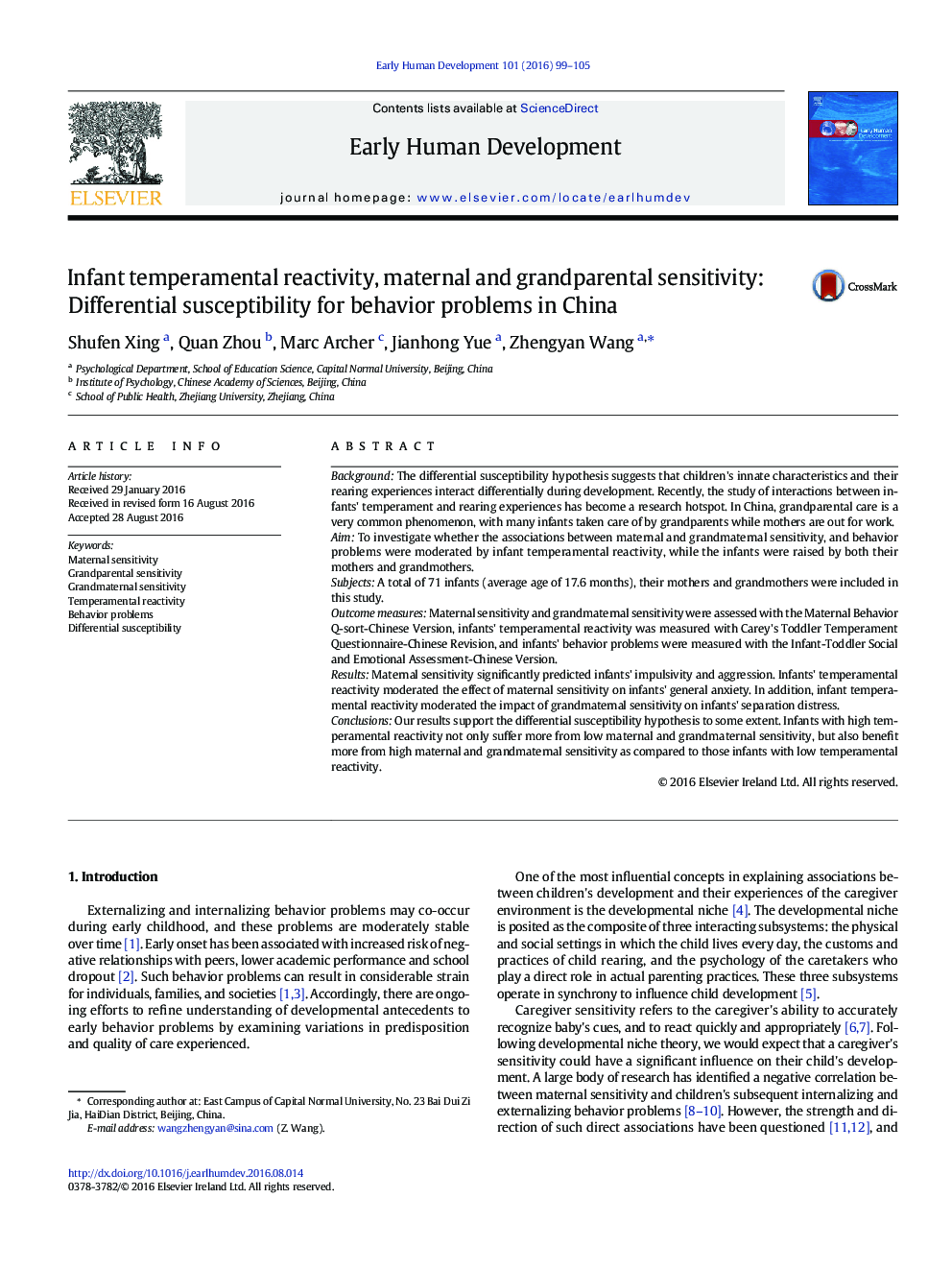| Article ID | Journal | Published Year | Pages | File Type |
|---|---|---|---|---|
| 3916674 | Early Human Development | 2016 | 7 Pages |
•We simultaneously examined the effects of maternal and grandmaternal sensitivity on infants’ behavior problems in China.•We examined the moderation of infants’ temperamental reactivity on relationship between caregiver sensitivity and child behavioral problems.•The results of this paper have supported of the differential-susceptibility hypothesis.
BackgroundThe differential susceptibility hypothesis suggests that children's innate characteristics and their rearing experiences interact differentially during development. Recently, the study of interactions between infants' temperament and rearing experiences has become a research hotspot. In China, grandparental care is a very common phenomenon, with many infants taken care of by grandparents while mothers are out for work.AimTo investigate whether the associations between maternal and grandmaternal sensitivity, and behavior problems were moderated by infant temperamental reactivity, while the infants were raised by both their mothers and grandmothers.SubjectsA total of 71 infants (average age of 17.6 months), their mothers and grandmothers were included in this study.Outcome measuresMaternal sensitivity and grandmaternal sensitivity were assessed with the Maternal Behavior Q-sort-Chinese Version, infants' temperamental reactivity was measured with Carey's Toddler Temperament Questionnaire-Chinese Revision, and infants' behavior problems were measured with the Infant-Toddler Social and Emotional Assessment-Chinese Version.ResultsMaternal sensitivity significantly predicted infants' impulsivity and aggression. Infants' temperamental reactivity moderated the effect of maternal sensitivity on infants' general anxiety. In addition, infant temperamental reactivity moderated the impact of grandmaternal sensitivity on infants' separation distress.ConclusionsOur results support the differential susceptibility hypothesis to some extent. Infants with high temperamental reactivity not only suffer more from low maternal and grandmaternal sensitivity, but also benefit more from high maternal and grandmaternal sensitivity as compared to those infants with low temperamental reactivity.
